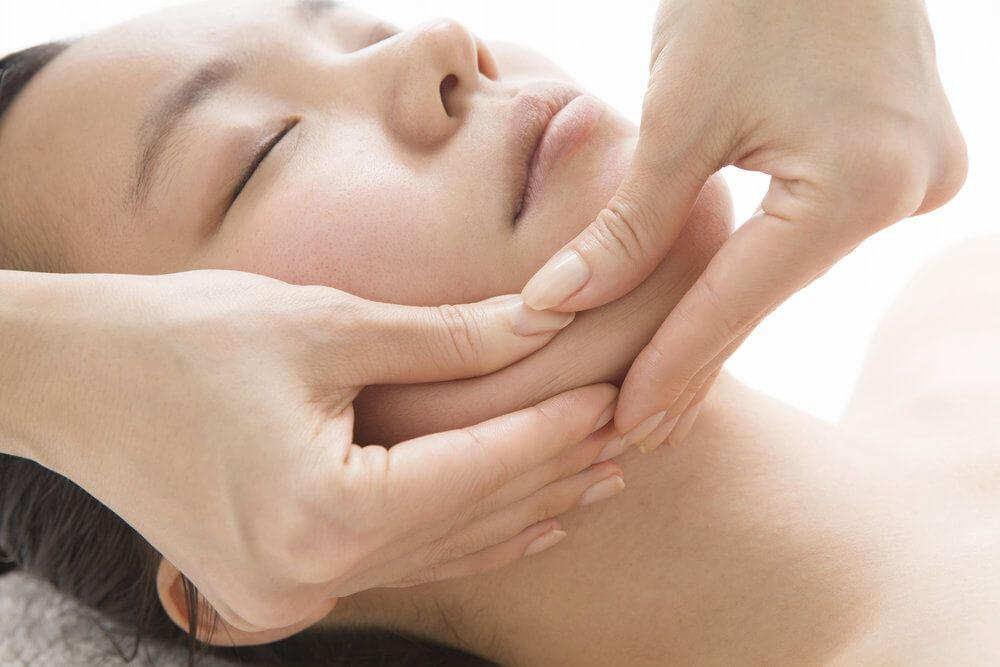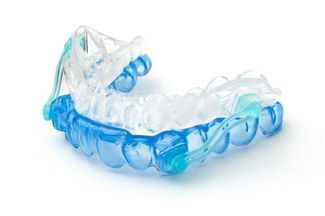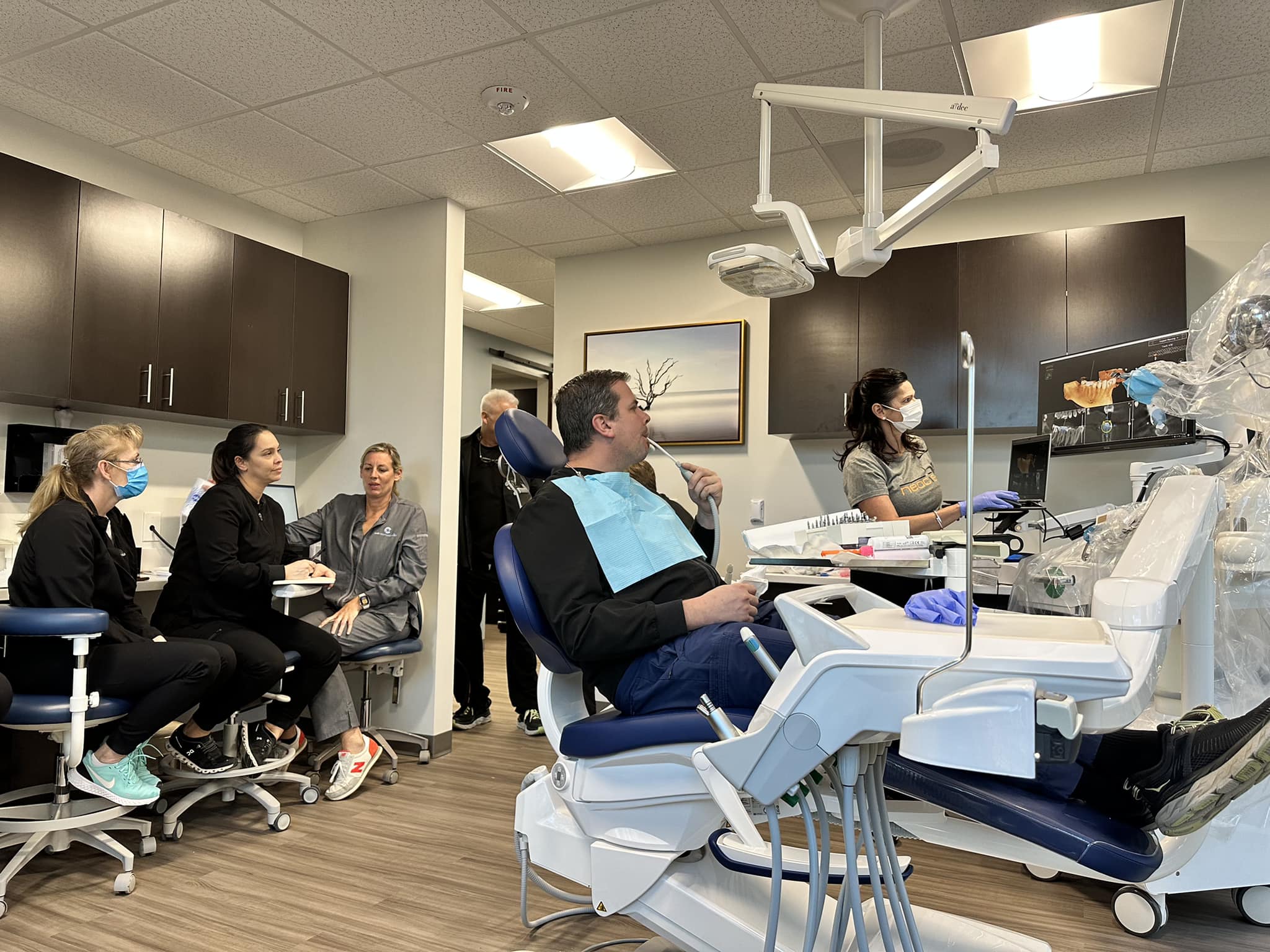
The Benefits of Non-Surgical Treatment
Your Treatment Options
Home Care
Mild to moderate symptoms of TMD often respond to self-care techniques at home. Some common home care treatments include:
- Taking over-the-counter medications, such as aspirin or Tylenol®
- Avoiding jaw movements which stress the joints, such as wide yawning or excessive gum chewing
- Improving the posture
- Using ice packs or moist heat on the jaw joints
- Practicing stress management and relaxation techniques
Changing your diet can also help minimize the amount of stress placed on your temporomandibular joints. Limiting your intake of hard foods which require a lot of chewing can take stress off of your TMJs and reduce your symptoms.
Mouthguards

Orthodontics
If your TMJ disorder is related to a misalignment, your dentist may suggest orthodontic treatment, such as a splint, braces, retainers, or Invisalign®. These treatments can realign your smile for a more comfortable bite which, in turn, can address your symptoms.
Jaw Exercises
Based on an analysis of your jaw movements, your dentist can teach you certain exercises so you can learn to control your jaw muscles and eliminate clenching. These simple exercises are often performed in front of a mirror.
Physical Therapy
For persistent symptoms of TMD, your dentist or doctor may refer you to a physical therapist who can combine multiple treatments together to help improve your symptoms. Common treatment used in physical therapy include ultrasound, moist heat, and ice, along with stretches and exercises.
Prescription Medications
Restoring proper bite alignment can often eliminate the symptoms of temporomandibular joint disorder.
Restorative Dental Work
Neuromuscular TMJ Treatment
Trigger-Point Injections
Transcutaneous Electrical Nerve Stimulation (TENS)
Radio Wave Therapy
Low-Level Laser Therapy
BOTOX for TMJ
Eliminate Your Symptoms without Surgery
Cary Prosthodontics
- American College of Prosthodontics (ACP)
- Academy of Osseointegration (AO)
- International Team for Implantology (ITI)
Visit Our Top-Rated Office
Are you looking for a dental practice you can trust to provide high-quality care? Our office is regularly rated five stars for the professional and friendly care we provide to our patients. To meet with one of our dentists and start your dental crown process, fill out our online form to request your consultation. You can also contact us by calling our office, serving Cary and Raleigh, NC, at:

The Proof is in Our patients
Our Office
Monday
7:30 AM - 3:30 PM
Tuesday
7:30 AM - 3:30 PM
Wednesday
7:30 AM - 3:30 PM
Thursday
7:30 AM - 3:30 PM
Friday
Closed
